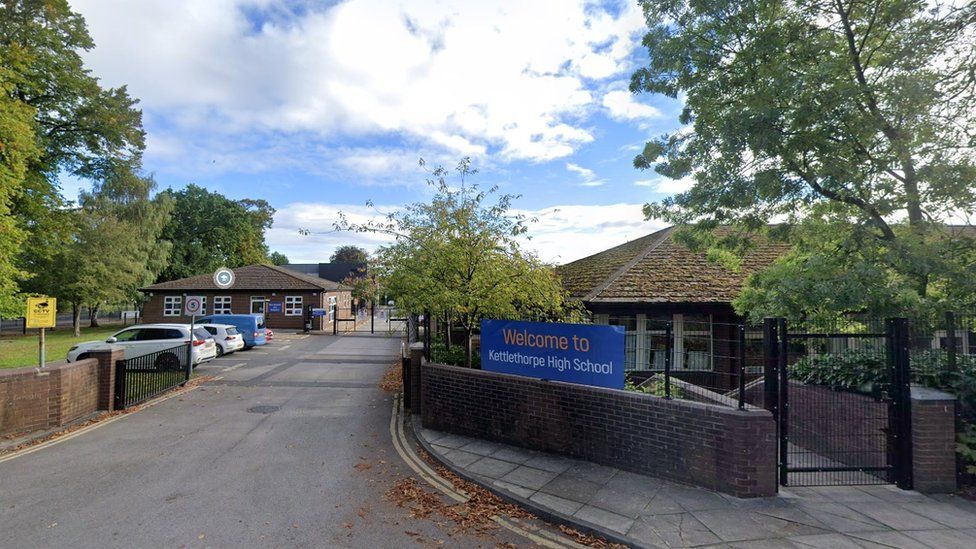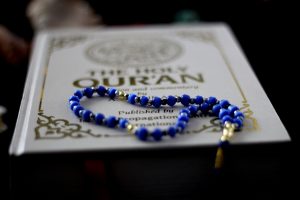By Khadija Khan
Nearly 400 years ago, the Italian astronomer and physicist Galileo Galilei was convicted of heresy. His crime was to confirm the view that the sun rather than the earth was the centre of the solar system.
While today we believe this to be a scientific fact, the Catholic Church at that time believed it was the sun that moved around the earth – a fact of scripture that could not be disputed. Galileo caused huge offence to the Church and, as a result, was prosecuted and put under house arrest.
Thanks to the Enlightenment and the broad separation of Church from the state, the unjust persecution witnessed in Galileo’s era has rarely occurred in Europe since then. However, there is still a minority that believes anyone who disrespects orthodox religious beliefs or holy texts must be punished or persecuted. To such people, protecting religion must come first and foremost, even if they have to bully others into compliance.
A recent incident at Kettlethorpe High School in Wakefield, West Yorkshire, epitomises this tragedy all too well.
A 14-year-old boy, who happens to be autistic, reportedly brought a copy of the Quran into school on a dare, as a forfeit for losing a game of Call of Duty with his mates. On the tennis court, they read aloud from the Quran then walked back inside the school, where another kid knocked it out of their hands and onto the floor.
Despite a school investigation and its officials saying there was no malicious intent, the four students were suspended with immediate effect. What should have been an internal matter quickly blew out of proportion. The police were then called in and recorded it as a ‘hate incident’.
An outcry ensued and a bunch of zealots seized upon the opportunity over their “religious sensibilities being hurt”. As is par for the course these days, misinformation was disseminated on social media, prompting even more of an overreaction.
But it gets much worse. The 14-year-old pupil in question received multiple death threats and has now been moved to a secret location. His mother has reported this to the police, yet for some reason our officers believe dealing with supposed blasphemy issues is more pressing than investigating actual matters of law and order.
The mother was hauled before the elders and the Muslim community at the local mosque, apologising on behalf of her son, explaining that she was “petrified” that he would be “beaten up if he goes back to school”.

You’d be forgiven for thinking that Wakefield is some sort of Islamic theocracy, not a town in 21st century Britain.
This was a minor incident, which has now potentially scarred the lives of innocent schoolchildren forever. Sadly, we have seen this story play out far too many times. There was Batley Grammar School (a 10-mile drive from Kettlethorpe High School) where, in 2021, a teacher was forced into hiding after he showed a cartoon of Muhammad to his religious-studies class. Not to mention The Lady of Heaven, a film that was banned from cinemas last year after a bunch of mobs protested about its supposed blasphemous contents.
All these events have alluded to the misconception that protecting religious sensibilities through violence and intimidation is acceptable – and that is deeply alarming.
For this is no more about “blasphemy laws through the backdoor”. The sheer capitulation on the part of the authorities has created an unruly, ferocious monster that is now an overt threat to anyone – even schoolchildren.
The British Home secretary, Suella Braverman, has taken notice of the incident and made her feelings on this very clear. “Nobody can demand respect for their belief system, even if it is a religion,” she said. “People are legally entitled to reject – and to leave – any religion. There is no apostasy law in this country. The act of accusing someone of apostasy or blasphemy is effectively inciting violence upon that person.”
The statement is encouraging and adds weight to the recent review of the UK’s Prevent counter-terrorism programme, which highlighted the “violence associated with accusations of blasphemy and apostasy” as a concerning matter in tackling the issue of extremism.
While the government has accepted the findings of the review with regards to the all-too prevalent threat of Islamism, the challenge we are facing requires more than just words.
Unwittingly or unintentionally, this pandering to religious outrage has created a parallel justice system in our society, where a bunch of unelected “community leaders” – in collaboration with intolerant clerics and intimidating mobs – decide the fate of those who stand accused of disrespecting religious sensibilities.
The Labour MP for Wakefield, Simon Lightwood, issued a contemptible statement, which stated that the handling of the whole affair at Wakefield school is somehow a way of “celebrating diversity and living together with tolerance.” It would be funny if it weren’t so tragic.
Such people continue to bury their heads in the sand. But the fact remains that until the Batley schoolteacher is allowed his old job back, the teenage boy in Wakefield can safely return to school, and the police turn their attention to investigating the threats of violence, any flickering hope of having a cohesive society will continue to fade.
People are entitled to their views in a secular, democratic country, which includes the freedom to question, criticise and even mock ideas that are supposedly sacred to some.
Blasphemy laws are contrary to human rights obligations to respect and protect the right to life and freedom of expression. Such draconian laws are used as a tool to subjugate the masses and victimise religious minorities or settle personal scores in countries such as Pakistan, Sudan and indeed several other Muslim-majority countries.
Blasphemy is regarded as a highly sensitive and controversial issue in such religiously conservative societies, where even mere allegations have led to extrajudicial killings and mob violence. That is why the self-proclaimed community leaders and their ilk who call for criminalising blasphemy against Islam do no service to anyone, least of all the Muslim communities they claim to represent.
This shameful episode in Wakefield should be a wake-up call for us all. This unhinged obsession with the curtailment of free speech on the pretext of protecting religious sensibilities will eventually eviscerate the freedoms we enjoy in Britain.
Those who claim otherwise are delusional. And it will only be a matter of time before we witness something like this again.

Khadija Khan is a journalist and commentator based in London. You can follow her on Twitter.


Thank you for this article. It reports events that the BBC is too scared to report.